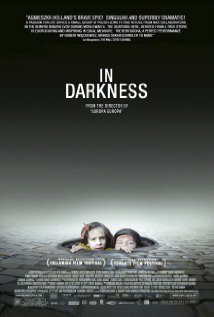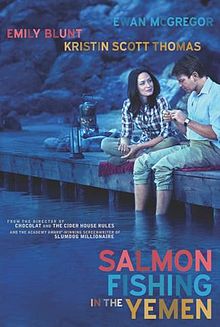
It is the curse of films dealing with the Holocaust to be bound not only by the score of films that also deal with the Holocaust, but also by our culture’s conceptions of and expectations for the treatment of the subject matter.
I would be remiss without invoking Schindler’s List, where the Nazis and their collaborators are undeniably villainous, their Jewish victims honest and respectable and their saviors noble and self-sacrificing.
Agnieszka Holland’s In Darkness complicates these expected portrayals, producing a conflicted and nuanced look of these archetypical personae as actual, flawed people, complete with murder, collusion, impotence, larceny and even sexuality.
Although perhaps not as emotionally wrenching as Schindler’s List or The Pianist, In Darkness provides a more realistic picture of the events as they transpired in the now-Ukrainian town of Lvov, as well as the sewers beneath it.
Our flawed protagonist, Leopold Socha (Robert Więckiewicz), has been making his living as a sewer inspector and house burglar in Lvov around the time of the German occupation of the town.
A man who knows the sewers better than any man in town, Socha struggles to care for his wife Wanda and his daughter on the meager amount he makes working and the rare treasures he’s been able to steal.
However, one day while patrolling the sewers underneath the Lvov ghetto, he encounters an enterprising group of Jewish men who have succeeded in tunneling their way in, a windfall for the money-strapped Socha: they offer him bribes to keep quiet, more to act as their guide in escaping the ghetto, and the reward offered for turning them in.
As Socha aids the men and their fellow escapees in avoiding pursuit in the sewers, his conflicting desires between the health and safety of his family, his duties to his friends and coworker and his newfound responsibility for the lives of the 11 Jews under his care threaten to tear his world apart and put his life among many others at risk.
As expected from people forced to live in tight, abject conditions for 14 months, the refugees are quarrelsome, petty and self-interested people, their unique characters and back-stories becoming more distinguished as their time in the sewers wear on.
Not content to convey her characters as two-dimensional victims of the atrocities, Holland devotes adequate screen time to more natural human circumstances, from frequent and semi-covert copulation, to thievery, murder and even childbirth, all within the dark confines of the sewer.
The most prominent villain, Socha’s Ukrainian friend who works as a captain along side the Nazi occupiers, is rendered at first with surprising geniality, while the worn down security and even sanity of the refugees provokes outbursts and confrontations wholly human and unique to people pushed beyond their breaking point, one refugee returning along the sewer to a concentration camp and refusing an opportunity to escape based on her unwillingness to die in the sewer.
The wobbly camera not only reveals the hands-on approach to cinematography employed in the film, but conveys the sense of ragged dynamacy that Socha’s wards feel at every turn in the plot, each moment of comfort for the escapees only seconds away from discovery or capture by German soldiers or bounty hunters who want the reward for turning them in.
As you would imagine given the name, lighting and the lack thereof characterizes most shots and the two hiding spots of the refugees serve as the setting for the majority of the film with surprising results.
The hurried, shrouded eye of the camera allows the audience to feel the tense uncertainty that dogs the escapees for the majority of the film, the few moments above ground interspersed with such terror of discovery that the safety of the sewers is palpable by contrast.
A masterful new take on a popular and codified topic, Agnieszka Holland’s In Darkness is a continuation of the same artistry that permeates Europa, Europa, her most well known work alongside the episodes of The Wire, The Killing and Treme that she also directed.
Although our culture may be saturated at this point dealing with the Holocaust, Holland’s In Darkness surpasses many such films in directorial artistry, rendering a gritty, conflicted and undeniably human take on dire events in the history of the Ukraine.
PHOTO COURTESY/WIKIPEDIA.ORG



